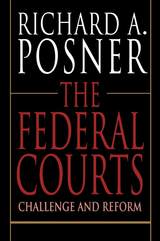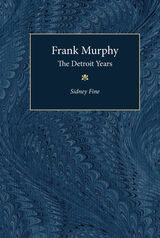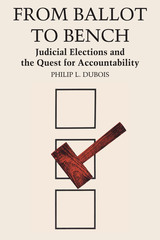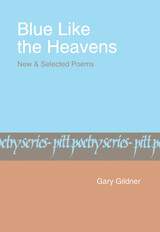5 start with F start with F

The federal courts are the world’s most powerful judiciary and a vital element of the American political system. In recent decades, these courts have experienced unprecedented growth in caseload and personnel. Many judges and lawyers believe that a “crisis in quantity” is imperiling the ability of the federal judiciary to perform its historic function of administering justice fairly and expeditiously.
In a substantially revised edition of his widely acclaimed 1985 book The Federal Courts: Crisis and Reform, Chief Judge Richard A. Posner of the U.S. Court of Appeals for the Seventh Circuit provides a comprehensive evaluation of the federal judiciary and a detailed program of judicial reform. Drawing on economic and political theory as well as on legal analysis and his own extensive judicial experience, Posner sketches the history of the federal courts, describes the contemporary institution, appraises the concerns that have been expressed with the courts’ performance, and presents a variety of proposals for both short-term and fundamental reform. In contrast to some of the direr prophecies of observers of the federal courts, Posner emphasizes the success of these courts in adapting to steep caseload growth with minimum sacrifice in quality.
Although the book ranges over a variety of traditional topics in federal jurisdiction, the focus is steady on federal judicial administration conceived of as an interdisciplinary approach emphasizing system rather than doctrine, statistics rather than impressions, and caseload rather than cases. Like the earlier edition, this book promises to be a landmark in the empirical study of judicial administration.

No sitting federal judge has ever written so trenchant a critique of the federal judiciary as Richard A. Posner does in this, his most confrontational book. Skewering the politicization of the Supreme Court, the mismanagement of judicial staff, the overly complex system of appeals, the threat of originalism, outdated procedures, and the backward-looking traditions of law schools and the American judicial system, Posner has written a cri de coeur and a battle cry. With the prospect that the Supreme Court will soon be remade in substantial, potentially revanchist, ways, The Federal Judiciary exposes the American legal system’s most troubling failures in order to instigate much-needed reforms.
Posner presents excerpts from legal texts and arguments to expose their flaws, incorporating his own explanation and judgment to educate readers in the mechanics of judicial thinking. This rigorous intellectual work separates sound logic from artful rhetoric designed to subvert precedent and open the door to oblique interpretations of American constitutional law. In a rebuke of Justice Antonin Scalia’s legacy, Posner shows how originalists have used these rhetorical strategies to advance a self-serving political agenda. Judicial culture adheres to an antiquated traditionalism, Posner argues, that inhibits progressive responses to threats from new technologies and other unforeseen challenges to society.
With practical prescriptions for overhauling judicial practices and precedents, The Federal Judiciary offers an unequaled resource for understanding the institution designed by the founders to check congressional and presidential power and resist its abuse.



Over several decades, many U.S. states abandoned the practice of selecting their judges by direct popular election and adopted the Missouri Plan of judicial selection. In From Ballot to Bench, Philip L. Dubois subjects the various criticisms raised against judicial elections to a more searching scrutiny than previously has been attempted.
Dubois carefully reviews the three central counts on which judicial elections have been faulted: for lowering the quality of the bench, for impairing judicial independence, and for failing to secure judicial accountability. After concluding that the potential for judicial elections to hold judges popularly accountable is what might commend them over alternative selection methods, Dubois concentrates on the analysis of empirical evidence to evaluate judicial elections as mechanisms of accountability.
The study examines all the statewide partisan and nonpartisan elections for state supreme court justices in non-southern states from 1948 to 1974. Included is a detailed examination of voter participation, electoral competition, the behavior of judicial electorates, and the patterns of gubernatorial vacancy appointments. An analysis of decision making on eight state supreme courts also tests the relationship between different selection systems and judicial behavior.
Dubois finds that partisan elections maximize voter participation, meaningfully structure voter choices, minimize accession to the bench by appointment, and allow popular control over gubernatorial appointments. Additional evidence on the extent of partisan voting by judges selected under different methods leads Dubois to conclude that partisan elections are superior to both nonpartisan elections and nonelective selection methods as instruments of accountability.
The importance of the questions addressed, the breadth of the data collected, and the unorthodox conclusions offered make this a significant book for political scientists, judges, lawyers, and public officials.
READERS
Browse our collection.
PUBLISHERS
See BiblioVault's publisher services.
STUDENT SERVICES
Files for college accessibility offices.
UChicago Accessibility Resources
home | accessibility | search | about | contact us
BiblioVault ® 2001 - 2024
The University of Chicago Press









